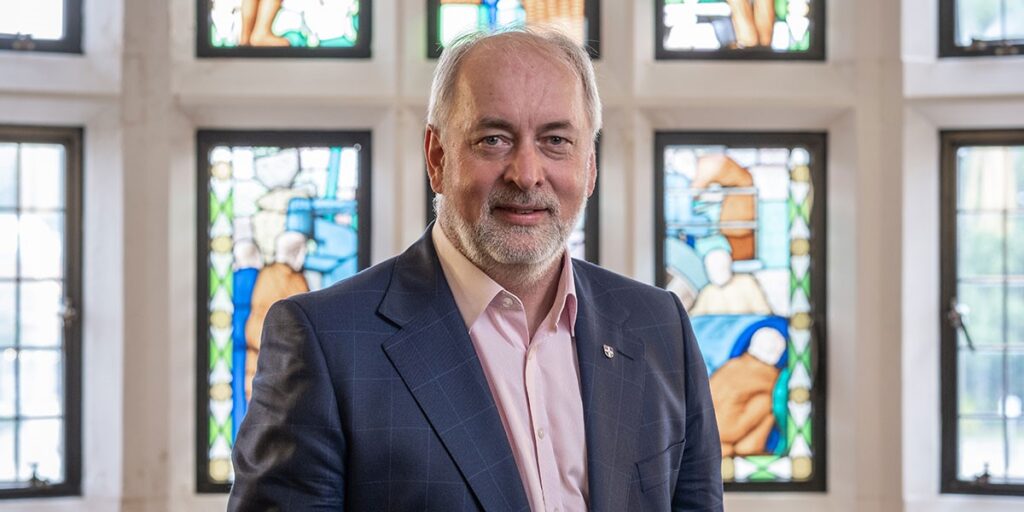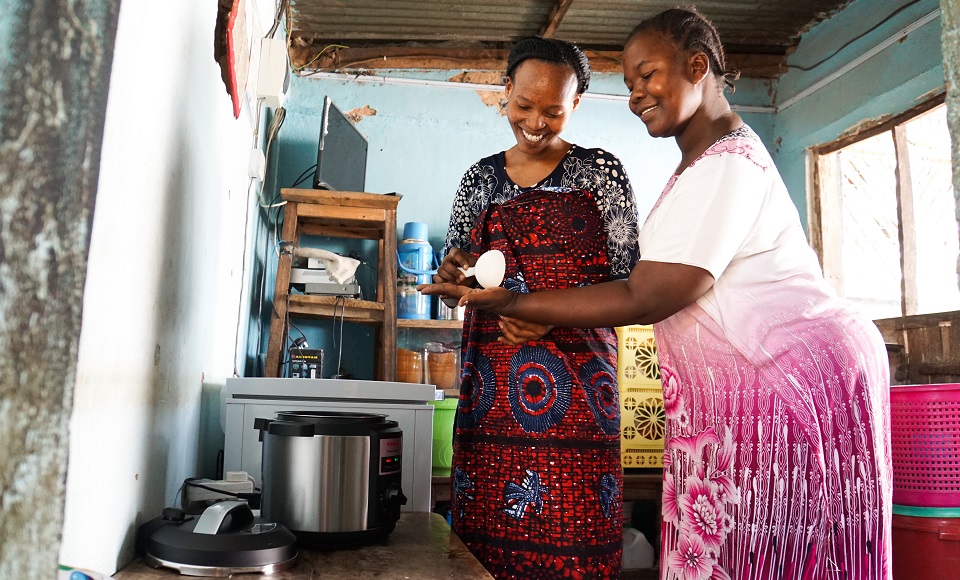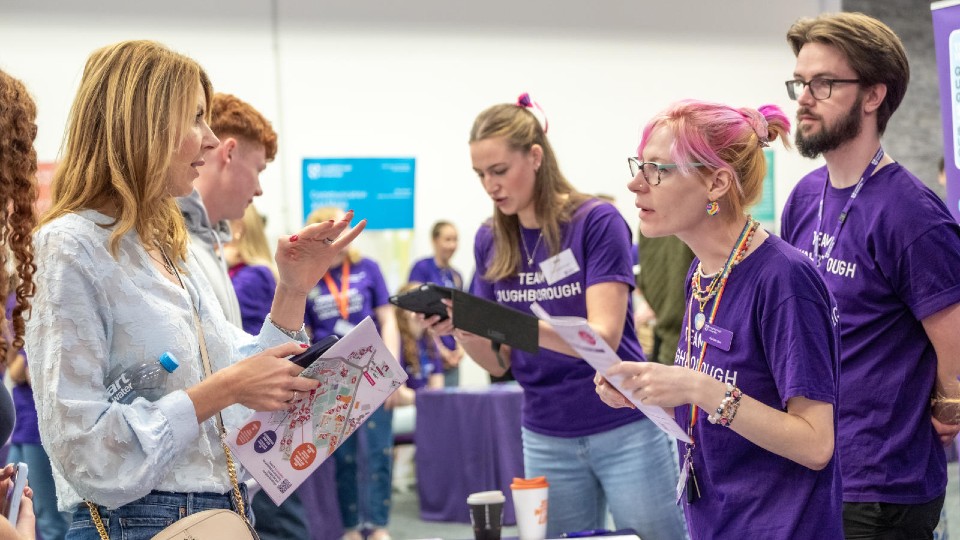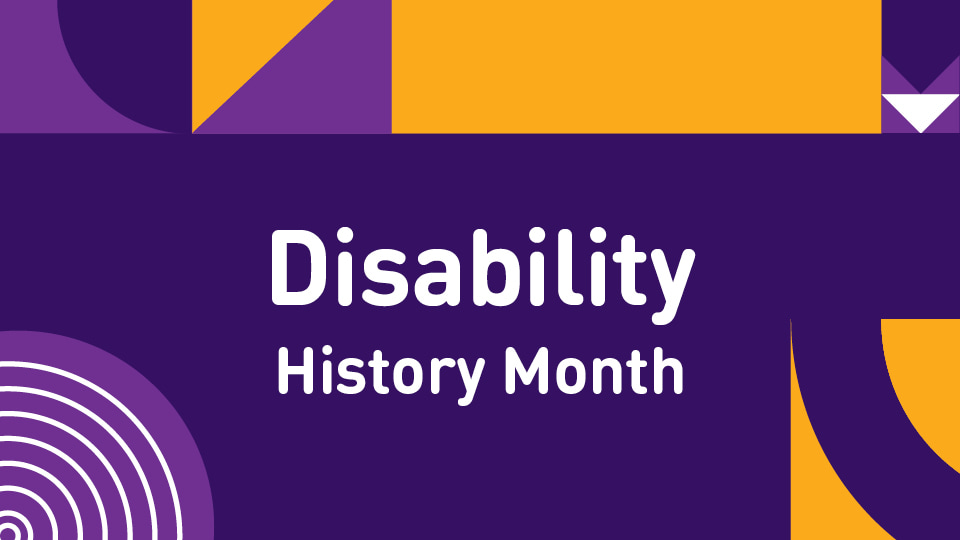From the Vice-Chancellor – November 2024

In my November newsletter: Building partnerships in Singapore and Malaysia, an additional £44m for the Modern Energy Cooking Services research programme, the inaugural Autumn open day, and marking Disability History Month.
Reinforcing our connections in Singapore and Malaysia
At the end of October, I undertook my first official visit as Vice-Chancellor to Malaysia and Singapore. These overseas delegations are an important aspect of our strategic activity, as they enable us to showcase the University’s research and education strengths to influential individuals and organisations, explore new partnership opportunities and strengthen our in-country alumni networks.
Our first stop was Malaysia, where we went to the Ministry of Higher Education and visited the University of Technology Malaysia to find out more about their research ambitions in the area of Artificial Intelligence (AI). Their new AI Faculty will play a central role in Malaysia’s aspirations to embrace AI technology.
We met with representatives from Petronas to explore research collaborations in sustainable energy engineering and how Loughborough could support the company with its continued recruitment of high-quality graduates, and we also hosted a reception attended by around 100 alumni based in Malaysia.
On the Singapore leg of the visit, we met with Nanyang Technological University, the Agency for Science, Technology and Research (A*STAR), and the National University of Singapore to discuss research collaboration in sport, health and hydrogen.
We had also been invited to take part in Singapore Week of Innovation and Technology, known as SWITCH – a major global event that brings together founders, investors and industry leaders in pioneering technology across a range of sectors, including health, environment, digital and manufacturing.
Three key Midlands’ collectives – Midlands Innovation, the Midlands Engine Partnership and Midlands Enterprise Universities – joined forces for the event to showcase the combined capabilities of 17 universities from our region, with a view to encouraging partnership development and investment. Loughborough’s focus for the exhibition was the work that’s underpinning our ambitions for the Hydrogen Works initiative to drive skills development, innovation and productivity, and the ways that global organisations can benefit from our world-class research and innovation base through the Science and Enterprise Park (LUSEP).
I was also invited to give a keynote speech at the SWITCH AI Summit on the creation of effective AI innovation ecosystems and participate in a panel discussion on the ways that the UK is building a flourishing AI habitat.
It is the first time that we have joined forces with others to be part of an overseas event such as SWITCH. If we harness the power of working together, to scale-up our strengths, our ambitions and our offer to investors, universities are undoubtedly stronger in the hunt for investment and partnership building.

Further Government funding awarded to MECS
Each year, some of the most powerful and influential people from around the world gather for COP, a global summit focused on the climate crisis and, importantly, the steps the world needs to take to address it.
A number of Loughborough colleagues from the Sustainable Transitions: Energy, Environment and Resilience Centre (STEER), in the School of Social Sciences and Humanities, contributed to this year’s event in Baku, Azerbaijan. For example, researchers from Climate Compatible Growth (CCG) were part of an event to spotlight the Green Grids Initiative, which brings together governments, legislators and international organisations to accelerate the construction of the new infrastructure needed for a world powered by clean energy.
At COP, the UK Minister for Development, Annelise Dodds, announced a further £44 million of funding for the Loughborough-led Modern Energy Cooking Services (MECS) research programme, taking the total investment to £99 million.
The additional funding from UK Aid (the Foreign, Commonwealth and Development Office) will extend the MECS programme by five years and enable the team to continue their mission to support 10 million people across Sub-Saharan Africa, South Asia and the Indo-Pacific to transition from biomass to clean cooking.
MECS was launched to find clean, affordable, reliable and sustainable cooking alternatives to biomass fuels, such as charcoal and wood. Currently, over a third of the world’s population cook using these polluting fuels, leading to poor air quality and around four million premature deaths each year – primarily among women and children. Using charcoal and wood to cook also has a significant impact on climate change, contributing three per cent to global CO2 emissions every year.
MECS embodies our strategic aim to work in partnership to undertake research that has the potential to make a global impact and bring about meaningful change. Since its establishment in 2018, MECS has enabled more than 3.8 million people to access cleaner and more efficient cooking equipment and practices, which has helped to reduce their fuel consumption and improve air quality.

Additional open day held in November
Ensuring that Loughborough continues to attract the very best students is one of our key strategic aims, and the open days we hold each year play a crucial role in showcasing the University to prospective students. The events enable Year 12 students and their families to visit academic departments, talk to staff and students, view accommodation and find out more about sport, recreational activities and why Loughborough is one of the leading universities in the country.
Each year the Loughborough open days attract thousands of visitors – attendance at our events has increased by almost 50% over the last 10 years and the open days this year, in June and September, attracted almost 32,000 visitors. The events are now so popular that we decided to add an additional autumn open day to our calendar and on 16 November we welcomed more than 4,000 visitors to the Loughborough campus.
As the open day was held during term-time, some elements were slightly different from our June and September events – for instance, visitors were able to take virtual reality tours of hall accommodation – but having our current students around gave the campus an authentic feel and allowed the prospective students to gain a real perspective on university life.
I know that holding an additional event in our open day calendar has increased the demands on staff in some areas, and I want to thank you, as always, for your commitment and support in ensuring that prospective students have the best experience here when they visit us. I always get lots of positive feedback from those who’ve attended. Given the current financial climate, it is more important than ever that we do everything we can to ensure that Loughborough continues to attract good numbers of well-qualified students, who will contribute so much to the continued success of the University.

Marking Disability History Month
From the middle of November to mid-December, we are marking Disability History Month, which this year has the theme of ‘Disability, Livelihood and Employment’.
Alongside the events we’re hosting, members of the University’s Disability and Inclusion Network have written a blog to share their personal experiences of living with different visible and invisible disabilities. They want to raise awareness of different conditions, some of which you may be aware of and others perhaps not, to reduce stigma and help colleagues across the University to be mindful of what others may be going through. I’d encourage you to take ten minutes to have a read.
The Disability and Inclusion Network, which is one of our staff network groups, supports those at Loughborough who have disabilities or care for others who have a disability. They have recently established two subgroups: the Cancer Support Group and Neurodiversity Support Group.
Our staff networks offer safe and supportive spaces, where staff can share and discuss their experiences, ideas and opinions. They play a significant role in influencing and shaping the University’s policies and practices and are integral to our work around Equity, Diversity and Inclusion.
Vice-Chancellor's Communications
Opinions and comment from the Vice-Chancellor, Professor Nick Jennings

